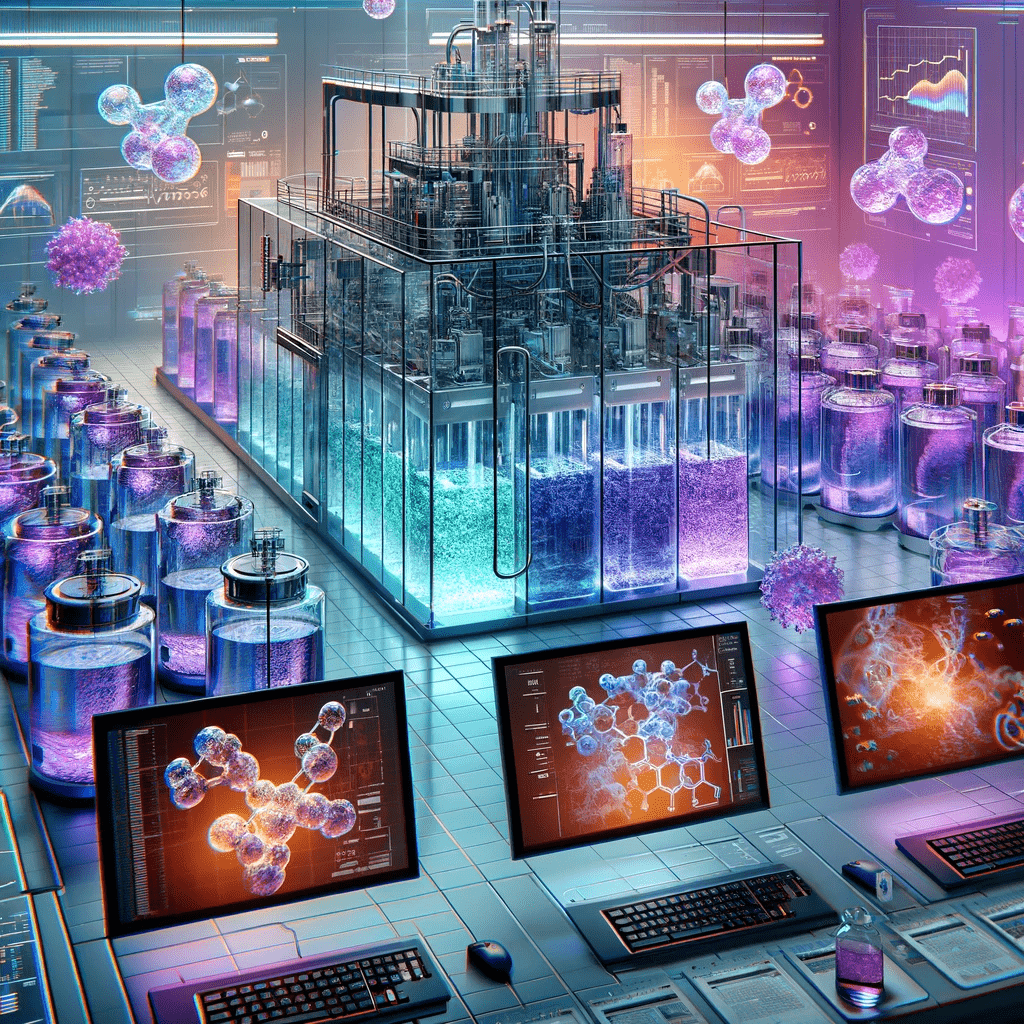Enzymit: Innovative AI for Cell-Free Enzyme Manufacturing

Enzymit, founded in 2020 by Dror Baran and Gideon Lapidoth, is revolutionizing the field of synthetic biology. Based in Ness Ziona, Israel, the company specializes in cell-free enzymatic manufacturing technology. Their goal is to make bioproduction faster, simpler, and more cost-effective than traditional methods.
In simple terms, Enzymit has developed a way to produce enzymes without using living cells. Traditionally, enzymes are harvested from organisms that naturally produce them. However, Enzymit’s approach bypasses the limitations of using whole cells for production. This innovation not only speeds up enzyme manufacturing but also makes the process more environmentally friendly.
What truly sets Enzymit apart is their use of sophisticated computational design algorithms and deep-learning techniques. These algorithms are like master chefs, crafting new enzymes with precision and speed that human researchers can hardly match.
The potential applications of this technology are vast. With the ability to produce enzymes on demand, Enzymit could revolutionize multiple industries, making them more sustainable and efficient.
The Impact of Enzymit’s Cell-Free Technology
Enzymit’s cell-free platform is a significant advancement in biomanufacturing. By eliminating the need for living cells, the company overcomes many obstacles that have traditionally slowed down enzyme production.
Why is this important?
- Speed and Efficiency: Cells require precise conditions to grow and produce enzymes, which can be slow and expensive. Enzymit’s technology avoids these issues, providing a solution that is faster and uses fewer resources.
- Environmental Benefits: Cell-free production reduces the carbon footprint of enzyme manufacturing. Traditional methods involve growing large volumes of microbial cultures, consuming significant energy and resources. In contrast, Enzymit’s process uses less water and energy.
- Customization: The company’s platform allows for the tailoring of enzymes for specific tasks. This means enzymes can be fine-tuned for particular industrial processes, making them work better and more efficiently.
Applications Across Industries
Pharmaceuticals
In pharmaceuticals, the development of new drugs could be accelerated. Enzymes play a crucial role in synthesizing medicinal compounds. Enzymit’s rapid production methods could shorten the timeline from drug discovery to market, potentially saving lives by making new treatments available more quickly.
Environmental Solutions
The environmental benefits are substantial. For example, enzymes designed to break down pollutants can be produced more efficiently. This contributes to a greener planet by aiding in pollution control and waste management.
Industrial Processes
Industries that rely on enzymes for production—such as biofuels, food, and textiles—can benefit from customized enzymes. Enzymit’s technology allows these industries to improve efficiency and reduce costs.
Harnessing Machine Learning for Custom Enzyme Design
Enzymit combines advanced computing with biotech knowledge in a groundbreaking way. At the core of their approach is a deep-learning platform that predicts how molecular changes affect an enzyme’s structure and function.
How does this work?
- Algorithmic Design: The algorithms sift through countless possible enzyme designs to find the best fit for a specific chemical reaction. This process would take human researchers years, but Enzymit’s technology accomplishes it rapidly.
- Experimental Validation: They have experimental tools to test these predictions. This means they can quickly refine enzyme designs to achieve near-perfect functionality.
- Tailored Solutions: The result is custom-made enzymes designed to perform specific tasks, such as cleaning pollutants from water or aiding in the creation of new medications.
This approach represents a broader trend in biotech: moving toward precision and personalization. By custom-building enzymes for specific applications, Enzymit sets new standards in biomanufacturing.
Enzymit’s Vision for the Future of Biomanufacturing
The future looks bright for Enzymit as they pave the way toward a more sustainable and productive biomanufacturing industry. Their pioneering work has the potential not only to enhance existing industrial processes but also to create entirely new ones.
Imagine a world where:
- Manufacturing is Faster and Greener: Processes are not only quicker and less costly but also significantly reduce environmental impact.
- Industries Reduce Carbon Footprint: Companies relying on enzymes can drastically lower their environmental impact, aligning with global commitments to sustainability.
- Products Become More Accessible: By driving down costs and speeding up production, a wide range of products could become more affordable, benefiting economies worldwide.
Challenges and Scalability
While the technology is promising, scaling up is a key challenge. Enzymit must maintain efficiency and customization while meeting increasing demand. Success in this area could position them as a central hub for enzyme production, serving various industries and applications.
Enzymit’s innovative approach to enzyme manufacturing is redefining production in multiple industries. By combining cell-free technology with advanced algorithms and deep learning, they offer faster, more efficient, and environmentally friendly solutions.
As they continue to refine their technology, Enzymit is poised to make a significant impact on global sustainability and industrial efficiency. Their work represents a significant step forward in biomanufacturing, with the potential to benefit economies and ecosystems worldwide.
References
Keywords
Enzymit, Cell-Free Enzyme Manufacturing, Biomanufacturing, Synthetic Biology, Enzyme Production, Deep Learning, Computational Design, Sustainable Technology
Disclaimer: The information presented in this article is for educational purposes and reflects findings as reported by Enzymit and related research. For detailed information, please consult the original sources or a qualified professional.

